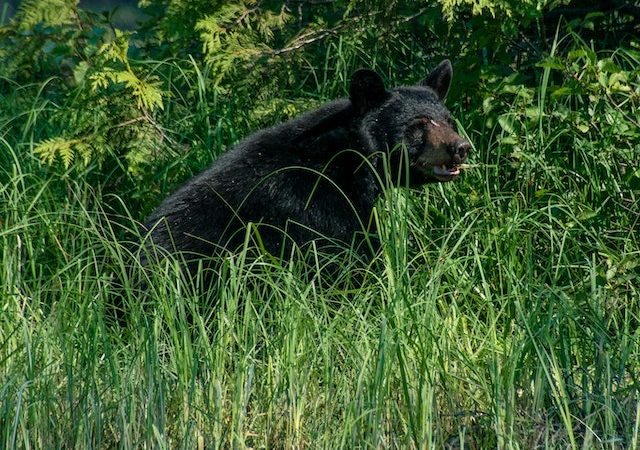In a distressing incident that highlights the unintended consequences of hunting, a hunter finds themselves entangled in a situation where they unknowingly violated the law by targeting and killing a federally protected bear. This unfortunate event sheds light on the need for hunters to be well-informed about hunting regulations and the protected status of certain
In a distressing incident that highlights the unintended consequences of hunting, a hunter finds themselves entangled in a situation where they unknowingly violated the law by targeting and killing a federally protected bear. This unfortunate event sheds light on the need for hunters to be well-informed about hunting regulations and the protected status of certain species to prevent such incidents from occurring.
Hunting is a popular recreational activity that, when conducted within legal boundaries and with responsible practices, can contribute to wildlife management and conservation efforts. However, it is the responsibility of hunters to be aware of the laws and regulations governing their hunting activities, including the identification and protection of federally protected species.
In this particular case, the hunter’s lack of knowledge regarding the protected status of the bear led to a severe legal violation. This highlights the importance of thorough research and understanding of local hunting laws and regulations before embarking on any hunting expedition.
To prevent similar incidents, hunters should educate themselves about the species that are protected under federal or state laws. This includes familiarizing themselves with the distinctive characteristics of these species and being able to differentiate them from other similar-looking animals that may be legally hunted.
Obtaining proper hunting permits and licenses is another critical aspect of responsible hunting. These documents often outline the specific species that can be hunted and any restrictions or protections in place. Hunters should ensure they are in possession of the correct permits and licenses that align with their intended targets.
Engaging in hunting education programs and workshops can significantly enhance a hunter’s knowledge and understanding of hunting regulations. These programs provide valuable insights into species identification, protected status, and ethical hunting practices, thereby reducing the risk of unintentional violations.
In the event that a mistake is made, it is imperative for hunters to immediately report the incident to the appropriate authorities. Cooperating fully with investigations and accepting the consequences of one’s actions are vital steps toward rectifying the situation and demonstrating accountability.
This incident should serve as a reminder to the hunting community about the importance of ongoing education and awareness. Sharing stories, lessons learned, and promoting responsible hunting practices can help prevent similar situations from arising in the future.
Moreover, wildlife conservation organizations and government agencies play a crucial role in disseminating information about protected species and hunting regulations. By actively engaging with these entities and staying informed about changes or updates in hunting laws, hunters can avoid unknowingly breaking the law and contribute to the conservation and sustainable management of wildlife populations.
In conclusion, the encounter between the hunter and the federally protected bear serves as a stark reminder of the need for hunters to be knowledgeable about hunting regulations and protected species. Through continuous education, responsible practices, and adherence to the law, hunters can ensure that their actions align with wildlife conservation efforts and contribute positively to the hunting community as a whole.

















Leave a Comment
Your email address will not be published. Required fields are marked with *